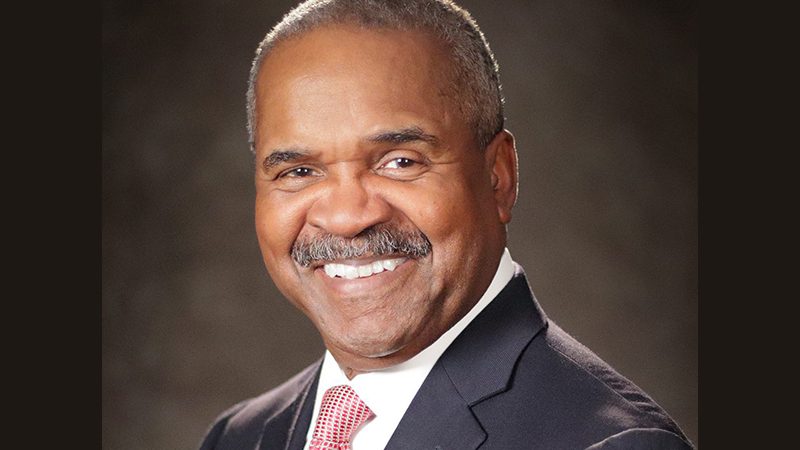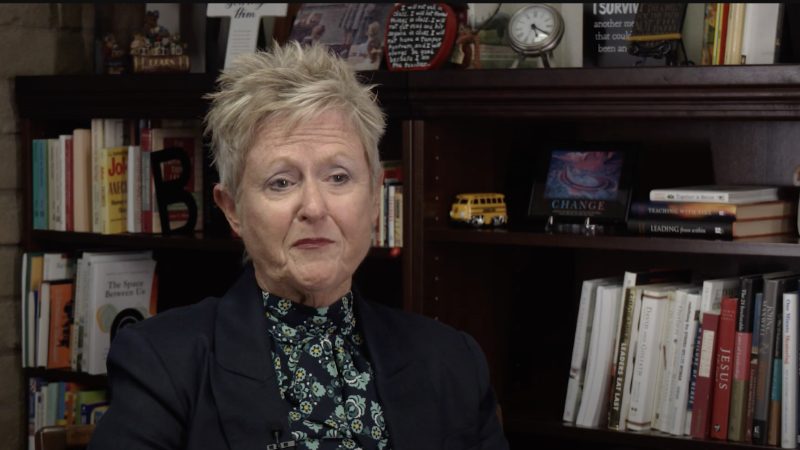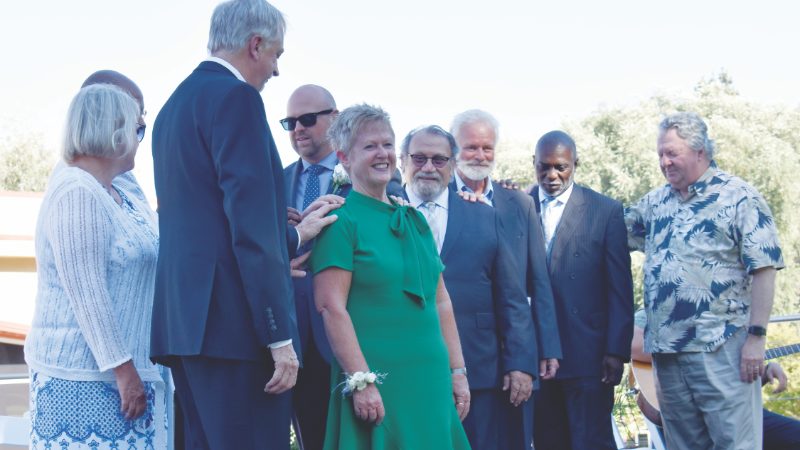
If your pastor should announce next Sabbath morning that he is going to speak on stewardship, most of the members would draw the conclusion that the sermon would be on money—tithes and offerings.
Christian stewardship certainly includes the proper use of our means and material possessions, but there is a much broader and more inclusive meaning to the term than most of us realize. As important as money is as a means for carrying the gospel to the world, neither the stewardship of means nor a discussion of the tithe and offering system is the basis of this article. Nevertheless, “stewardship” is the theme to be studied.
The definition of Christian stewardship as adopted by the Joint Department of Stewardship of the National Council of the Churches of Christ in America is a good one and one that we could easily accept:
"Christian Stewardship is the practice of systematic and proportionate giving of time, abilities and material possessions, based on the conviction that these are a trust from God to be used in His service for the benefit of all mankind, in grateful recognition of Christ's redeeming love."1
As described and defined above, Christian stewardship sets forth a plan of living—a life purpose to keep us constantly aware of our individual responsibility and privilege in this divine partnership of conscientiously administering everything God has entrusted to us. The emphasis is upon systematic and proportionate giving—giving of time, talents, and treasure.
It is not necessary here to restate the recognized and basic principles that establish the fact of God's ownership of the world and that as His children we are His stewards. But it is important here to remind God's children, “It is required in stewards, that a man be found faithful” (1 Corinthians 4:2).2
This requirement is made, first of all, for a person's own sake; second, for the benefit of all humankind; and last, as a means to show our appreciation to God for His redemptive love. Too often the thanksgiving phase of stewardship is forgotten or neglected.
As we recognize God's greatness and our accountability to Him and His children, stewardship thus becomes a spiritual attitude, a motivating factor, a philosophy of life.

Stewardship has been observed as having a triangular relationship to our environment with three angles that point: 1) upward, in relation to God; 2) inward, in relation to self; 3) outward, in relation to others.
As we recognize God's greatness and our accountability to Him and His children, stewardship thus becomes a spiritual attitude, a motivating factor, a philosophy of life—an expression of gratitude in terms of living, serving, giving. In this life of service and giving, human values are set above material values; the worth of human personality regardless of nationality, color, or class is recognized as God's crowning creative work. The outreach of this type of stewardship includes the stewardship of one's thoughts, time, talents, and treasure.
In 1 Chronicles 29:5 the marginal notes for the words “to consecrate" read “to fill his hand." A consecrated Christian steward will come to the Lord with the full hand of Christian service. In this Old Testament account connected with the building of Solomon's Temple at Jerusalem, David made a call to the people: “Who then is willing to consecrate his service this day unto the Lord?” (1 Chronicles 29:5). The result is observed in verse 9: “Then the people rejoiced, for that they offered willingly.” In the recognition of God's creatorship and ownership of all, one finds the secret of this willingness on the part of the people to offer their service and gifts to the Lord: “But who am I, and what is my people, that we should be able to offer so willingly after this sort? for all things come of thee, and of thine own have we given thee” (1 Chronicles 29:14).
If you are really God's—if God has you as His very own—you will render willing and faithful service to Him without special urging. As consecrated “stewards of the manifold grace of God” (1 Peter 4: 10), we shall be willing laborers together with God in a sacred partnership.
These broader aspects of stewardship of the whole of life are not only taught in the parables of Jesus but are plainly set forth in the writings of Ellen G. White, where the author emphasizes people's responsibility to God for their time, ability, influence, and the many other talents entrusted to them apart from their material possessions and gifts. The delicate touch of the physician's hand and the skill with which the carpenter uses the hammer are examples of gifts people are to use with “unerring aptitude, testifying that they are workers together with God” (Ellen G. White, Counsels on Stewardship, p. 114). “The practical benevolence, the self-denial and self-sacrifice...have an influence for good upon those with whom he associates” (p. 115).

“Each steward,” she continues, “has his own special work to do for the advancement of God's kingdom. No one is excused.… The talents of speech, memory, influence, property, are to accumulate for the glory of God and the advancement of His kingdom. He will bless the right use of His gifts” (p. 116).
When the glowing beauty and truth of an all-embracing stewardship dawns upon the consciousness of our lives and “stirs to golden life,” as the poet wrote,3 a new day of Christian service and partnership with God will be ours. We shall not only recognize the lordship and ownership of God in the material aspects of our relationships but also acknowledge them through the systematic and proportionate use of all our talents and abilities to build His kingdom.
_____________________________
1 Helge Brattgård, God’s Stewards: A Theological Study of the Principles and Practices of Stewardship, translated by Gene J. Lund (Minneapolis: Augsburg, 1963), p. 5.
2 All Scripture quotations are from the King James Version.
3 Ralph Spaulding Cushman, “God’s Dawn” (Abingdon Press).
Ofrendas sistemáticas y proporcionadas
Por Teobaldo Montagut

Si su pastor anunciara el próximo sábado por la mañana que va a hablar sobre la mayordomía, la mayoría de los miembros sacarían la conclusión de que el sermón sería sobre dinero, diezmos y ofrendas.
La mayordomía cristiana ciertamente incluye el uso adecuado de nuestros medios y posesiones materiales, pero hay un significado mucho más amplio e inclusivo para el término de lo que la mayoría de nosotros nos damos cuenta. A pesar de lo importante que es el dinero como medio para llevar el evangelio al mundo, ni la mayordomía de los medios ni la discusión del sistema de diezmos y ofrendas son la base de este artículo. Sin embargo, la «mayordomía» es el tema a estudiar.
La definición de mayordomía cristiana adoptada por el Departamento Conjunto de Mayordomía del Consejo Nacional de las Iglesias de Cristo en América es nuy apropiada y una que podríamos aceptar fácilmente:
«La mayordomía cristiana es la práctica de dar sistemáticamente y de manera proporcionada el tiempo, las habilidades y las posesiones materiales, basados en la convicción de que éstas son un encargo de Dios para ser utilizadas en su servicio en beneficio de toda la humanidad, en reconocimiento agradecido del amor redentor de Cristo».1
Como se describió y definió anteriormente, la mayordomía cristiana establece un plan de vida, un propósito de vida para mantenernos constantemente conscientes de nuestra responsabilidad y privilegio individuales en esa asociación divina de administrar concienzudamente todo lo que Dios nos ha confiado. El énfasis está en la donación sistemática y proporcionada, es decir, en la entrega de tiempo, talentos y tesoros.
No es necesario repetir aquí los principios reconocidos y básicos que establecen el hecho de que Dios es dueño del mundo y que, como sus hijos, somos sus mayordomos. Pero es importante recordar aquí a los hijos de Dios: «Se requiere de los mayordomos es que cada uno sea hallado fiel» (1 Corintios 4:2).
Ese requisito se hace, en primer lugar, por el bien de la persona; segundo, en beneficio de toda la humanidad; y por último, como un medio para mostrar nuestro agradecimiento a Dios por su amor redentor. Con demasiada frecuencia, la fase de acción de gracias de la mayordomía se olvida o se descuida.
A medida que reconocemos la grandeza de Dios y nuestra responsabilidad ante él y sus hijos, la mayordomía se convierte en una actitud espiritual, un factor motivador, una filosofía de vida

Se ha observado que la mayordomía tiene una relación triangular con nuestro entorno con tres ángulos que apuntan: 1) hacia arriba, en relación con Dios; 2) hacia adentro, en relación con uno mismo; 3) hacia afuera, en relación con los demás.
A medida que reconocemos la grandeza de Dios y nuestra responsabilidad ante él y sus hijos, la mayordomía se convierte en una actitud espiritual, un factor motivador, una filosofía de vida, una expresión de gratitud en términos de vivir, servir y dar. En esa vida de servicio y de generosidad, los valores humanos se sitúan por encima de los valores materiales; el valor de la personalidad, independientemente de la nacionalidad, el color o la clase, se reconoce como la obra creativa suprema de Dios. El alcance de ese tipo de mayordomía incluye la mayordomía de los pensamientos, el tiempo, los talentos y los tesoros.
En 1 Crónicas 29:5 las notas marginales de las palabras «consagrar» dicen «llenar su mano». Un mayordomo cristiano consagrado vendrá al Señor con toda la mano del servicio cristiano. En ese relato del Antiguo Testamento relacionado con la construcción del Templo de Salomón en Jerusalén, David hizo un llamado al pueblo: «¿Quién, pues, está dispuesto a consagrar su servicio hoy a Jehová?» (1 Crónicas 29:5). El resultado se observa en el versículo 9: «Entonces el pueblo se regocijó, porque ofrecían de buena gana». En el reconocimiento de la creación de Dios y de la propiedad de todo, se encuentra el secreto de esa disponibilidad por parte del pueblo a ofrecer su servicio y sus dones al Señor: «¿Quién soy yo, y qué es mi pueblo, para que podamos ofrecer espontáneamente cosas como estas, siendo todo tuyo, y que de lo que hemos recibido de tu mano, te damos?» (1 Crónicas 29:14).
Si realmente eres de Dios, si Dios te tiene como suyo, le prestarás un servicio voluntario y fiel sin necesidad de una exhortación especial. Como consagrados «administradores de la multiforme gracia de Dios» (1 Pedro 4:10), seremos obreros dispuestos junto con Dios en una asociación sagrada.
Esos aspectos más amplios de la mayordomía de toda la vida no solo se enseñan en las parábolas de Jesús, sino que se exponen claramente en los escritos de Ellen G. White, donde la autora enfatiza la responsabilidad de las personas ante Dios por su tiempo, habilidad, influencia y los muchos otros talentos que se les han confiado, aparte de sus posesiones materiales y dones. El delicado tacto de la mano del médico y la habilidad con que el carpintero usa el martillo son ejemplos de dones que las personas deben usar con «aptitud infalible, testificando que son obreros juntamente con Dios» (Ellen G. White, Consejos sobre mayordomía, p. 114). «La benevolencia práctica, la abnegación y el sacrificio... tener una influencia para el bien de aquellos con quienes uno se asocia» (p. 115).

«Cada mayordomo», continúa, «tiene su propio trabajo especial que hacer para el avance del reino de Dios. Nadie está excusado... Los talentos de la palabra, la memoria, la influencia, la propiedad, se han de acumular para la gloria de Dios y el avance de su reino. Él bendecirá el uso correcto de sus dones» (p. 116).
Cuando la belleza resplandeciente y la verdad de una mayordomía que todo lo abarca amanezca en la consciencia de nuestra vida y «se agite a una vida dorada», como escribió el poeta,2 un nuevo día de servicio cristiano y asociación con Dios será nuestro. No solo reconoceremos el señorío y la propiedad de Dios en los aspectos materiales de nuestras relaciones, sino que también lo reconoceremos a través del uso sistemático y proporcionado de todos nuestros talentos y habilidades para establecer su reino.
_____________________________
1 Helge Brattgård, God’s Stewards: A Theological Study of the Principles and Practices of Stewardship, translated by Gene J. Lund (Minneapolis: Augsburg, 1963), p. 5.
3 Ralph Spaulding Cushman, “God’s Dawn” (Abingdon Press).





